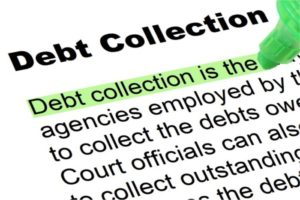 Getting phone calls from collectors are no doubt annoying, but can be illegal if collectors do not follow the rules of the Fair Debt Collections Practice Act (FDCPA). Many financial institutions and collection agencies now use automated robo calls to contact the debtor and they may call frequently each day. If you answer, the system acknowledges receipt of the phone call and switches to a live representative.
Getting phone calls from collectors are no doubt annoying, but can be illegal if collectors do not follow the rules of the Fair Debt Collections Practice Act (FDCPA). Many financial institutions and collection agencies now use automated robo calls to contact the debtor and they may call frequently each day. If you answer, the system acknowledges receipt of the phone call and switches to a live representative.
Even if they are conscious of the rules, mistakes can happen. One case involved a woman who lost her job and fell behind on her monthly gym bill. After three months, she managed to pay them the money that was due and was able to zero out her balance, but the account was already sent to a collection agency.
A few days later the collection agency called her numerous times to the point that she became so annoyed, she called the agency and left numerous messages that the bill was paid; however, these messages fell upon deaf ears and they still kept calling her. The woman then called the gym and told them she was going to file a lawsuit.
Shortly after, the owner of the collection agency called the debtor and apologized. No doubt the gym immediately contacted the agency and told them to close the account, but there was an initial miscommunication between the gym and the collection agency or the collection agency failed to close the account when the gym contacted them.
Some debt collectors may rely on incorrect information when they call you, because the creditor you originally owed the money to may have sold your debt to a collection agency, which in turn may have sold it to another agency, a mistake somewhere along the way could mean that the collector contacting you has incorrect information.
So, even if the calls are from legitimate organizations and they abide by the rules of the FDCPA, you need to stay abreast of what you owe and know what the laws are regarding debt collection. Let’s take a look at the policies regarding debt collection:
Allowed Time
Dept collections can only call between the hours of 8 a.m. and 9 p.m., unless you specifically give them permission to call at times other than their required allotment of time.
Who They Can Call
Collectors can only call the debtor and request money. If someone else picks up the phone, the representative cannot tell the third party what the call is about and unequivocally cannot tell that person that the debtor owes them money. Bank or collection representatives cannot talk to anyone other than you about your debt, unless you give them specific permission to speak to other parties. Collectors are allowed to contact third parties to try to track you down (called skip tracing), but they are only allowed to ask those people for your address, home phone number and place of employment.
Say They are From a Law Enforcement Agency
The FDCPA strictly prohibits debt collectors from pretending to work for any government agency, including law enforcement.
Say They’ll Have You Arrested
Debt collectors are prohibited from falsely saying that you will be arrested if you don’t repay the money that you owe. Collection agencies cannot issue arrest warrants or have you put in jail; however, if you receive a summons to appear in court, you must go and if you have to pay a fine or penalty and don’t, you could run the risk of being subjected to additional consequences determined by the court, including possible arrest.
Publicize Your Debt
Debt collectors are not allowed to publish the names of people who have fallen behind on their loan or credit cards payments.
Try to Collect Debt You Don’t Owe
The FDCPA requires collectors to send you, within five days of first contacting you, a written notice stating how much you owe, to whom and how to make your payment. If you aren’t sure whether you owe a debt, send a letter to the collector via certified mail with a return receipt, asking for more information, while being careful not to assume any responsibility for the debt.
Harassment
In summary, debt collectors are not permitted to:
- Speak to anyone other than you about your account
- Threaten to have you arrested
- Threaten you with violence or harm
- Use obscene or profane language
- Call you repeatedly
- Call you before 8:00 a.m. or after 9:00 p.m.
Know your rights and be ready to knowledgeably converse with a debt collector if they call. If you are having financial problems, many companies will be able to work out a payment plan with you. What you should not do is ignore their calls.
To learn more, read Protect Yourself From Zombie Debt Collectors.
 What Makes Me Different From the Others?
What Makes Me Different From the Others?